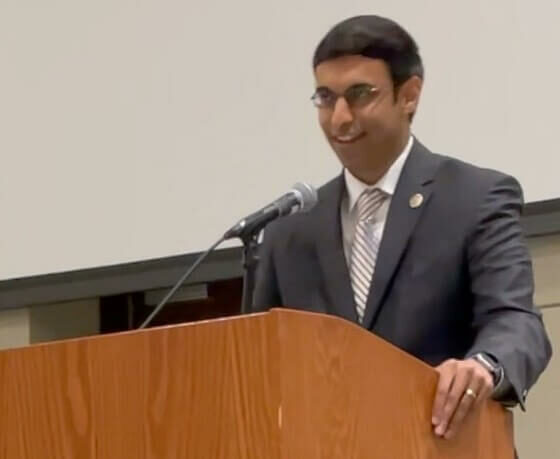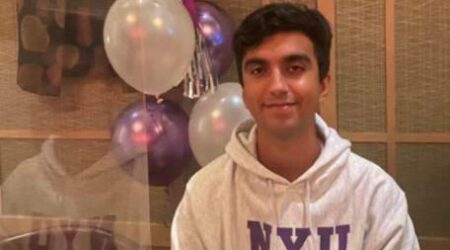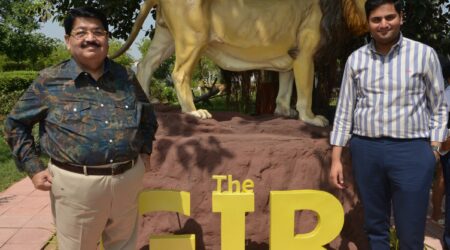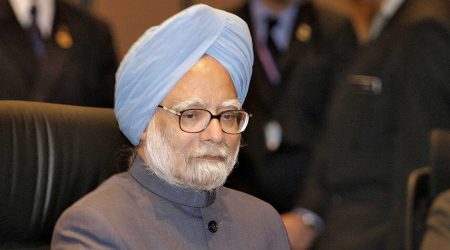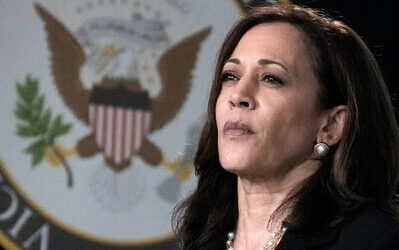Good afternoon ladies and gentlemen, esteemed guests, and volunteers. My name is Raj Parekh and I serve within the United States Department of Justice as the Acting United States Attorney for the Eastern District of Virginia. I am deeply humbled to be celebrating Gandhi Jayanti—the birthday of Mahatma Gandhi—with you all, which is recognized by the United Nations as the International Day of Non-Violence and an occasion on which we are all called upon to disseminate the message of non-violence through education and public awareness. Thank you to the Shanti Fund, an organization which has spread enlightenment and peace through education for over two decades, for organizing and bringing all of us together for this very special event.
I am also humbled because your invitation to be here today represents a homecoming for me, both physically and spiritually. Today, I am elated to not only be back in the place where I grew up, but also among those who love and cherish the culture, history, and shared experiences that have shaped my path, and the paths of many others, in life.
In my reflections on Gandhiji’s life and tremendous legacy, the path—the theme of the journey—has surfaced many times. Indeed, many biographers of Gandhiji agree that at the start of his journey, he could not be readily characterized as a prodigy. A mediocre student, slight of stature and shy in nature, he did not yet cut the figure of an internationally renowned leader. It was the devotion of his mother, the careful career-steering of his father, and immersing himself in the law even while he was facing discrimination based on his skin color and heritage as he was studying overseas, that informed his reaction to many hardships and set him on the path of advocacy. For those worried about a late blooming child or grandchild, remember that Gandhiji was 45-years-old when he returned to India to begin his groundbreaking civil rights movement there. As a 40-year-old, I still have plenty of time (joking, of course).
My parents helped shape my journey in ways I could not have foreseen as a child. I grew up near here in Amityville as a first-generation American after they immigrated from India. My father worked in the textile sales industry for four decades, before losing his eyesight. My mother held two jobs at one point to financially support and care for our family. They both made countless sacrifices to make ends meet. And my grandfather, who we affectionately remember as Papaji, served as a Member of India’s first democratically-elected Parliament. It is through their compassion, tireless work ethic, and service to their communities, that I learned the importance of always giving back and helping others. I’m also a proud father of a wonderful child, and I especially thank my wife for supporting me throughout my entire career. She is my rock and has been with me every step of the way. My career journey would not have been possible without her.
None of us can claim to know the same degree of hardship that Gandhiji endured during his arduous journey in seeking change, but all of us here in this room and beyond have felt our world change, including 20 years ago. I remember how so many, including in the South Asian community, experienced racial prejudice and discrimination in the aftermath of the September 11, 2001 attacks simply because of the color of their skin. We will never forget the nearly 3,000 innocent lives that were lost, the countless individuals who suffered injuries or have experienced devastating effects from the aftermath of the attacks, and the families of victims and survivors who continue to endure unimaginable pain arising from the horrific events that day. But through those struggles, and in our sadness, we found the resolve to stand together against terror, hatred, and fear.
Since achieving global fame, Mahatma Gandhi has become synonymous with peace and equality. He preached that a true society would protect the right to equality of opportunity. That is everyone is equal and deserve equal opportunities to pursue their own happiness and success. He saw the widening gap between the ‘haves’ and the ‘have-nots’ as an inevitable source of violence and conflict. We live in a world today where we unfortunately still have these gaps. However, we do not accept that this is the way it should be. And like Gandhiji, we are striving to close these gaps in ways that teach others, including our youth, that resorting to violence is never the answer. But enlightenment and peace through education is.
Gandhiji was famously a promoter of non-violence, but it was what he used instead of violence that carried his causes: he magnified the voices of the people. And not just any people, coalitions of people. He brought together people of different faiths, disparate castes, men and women, to join together in non-violent action, and amplified words of frustration and desire for change. He converged these paths, which seemed so far apart, to walk together in solidarity toward a shared purpose and goal.
At the Department of Justice, it is part of our mission to bring peace and justice to the communities we serve, but as Gandhiji’s legacy has taught us, we know that we cannot walk that path alone. We have called on our partners—federal, local, and state authorities, non-profits, churches, temples, mosques, community organizations—to work with us to address violence, inequality, discrimination, and the host of other issues we all seek to alleviate. I have been humbled to sit with members of our communities in Virginia to hear their stories of painful experiences and life struggles. These stories I too carry with me now on my path, along with everything I learned in my childhood here on Long Island. Our Office has made it a priority to elevate these voices and interweave their hopes and needs into how we handle our cases and pursue equal justice. Just as in Gandhiji’s journey, there have been and will continue to be stumbles along the way, and those who oppose. But we are committed to walking this path undeterred, one that we hope will generate lasting and positive change for our generation and future generations, and bring us all to a place of peace, together.
Thank you.


